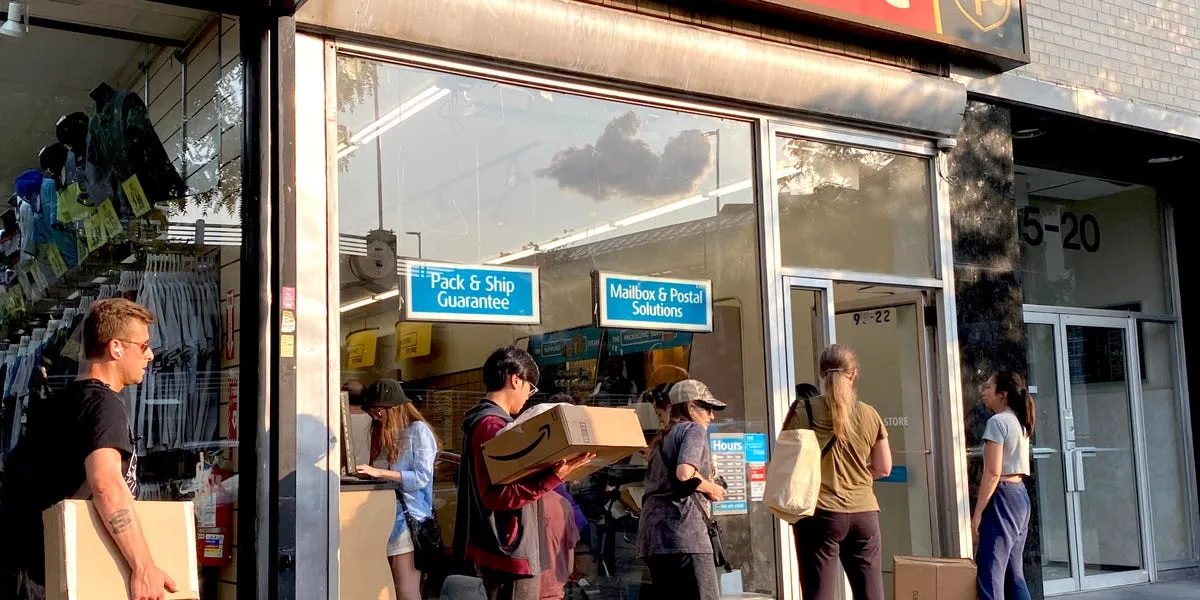
Rich DeThomas never anticipated that ordering wine from Italy would turn into such a complicated affair. In late August, he placed an order for a dozen bottles of red wine to be shipped to his home in Huntsville, Alabama. Unfortunately, the shipment never arrived. Citing recent tariff changes, UPS requested additional details about the shipment before ultimately declaring that they couldn't deliver the wine to DeThomas at all. To add insult to injury, after receiving a replacement shipment from the vineyard, he was hit with a $13 bill from UPS for abandoning the initial case. "It's the headache of dealing with it all," DeThomas expressed in frustration. "What the hell? What's going on?"
DeThomas is not alone; he represents many Americans who are beginning to feel the effects of President Donald Trump's sweeping tariff announcements made in April. Following the termination of the de minimis loophole in August, which previously exempted shipments worth under $800 from tariffs, many customers are now facing unexpected challenges. They find themselves navigating the complicated world of tariffs and customs to ensure their online orders arrive without a hitch.
The chaos surrounding UPS shipments has become particularly evident, as packages have been left sitting in warehouses for days or even weeks. In some cases, UPS has informed customers that their shipments may be disposed of due to customs issues that have arisen since the loophole's demise. A spokesperson for UPS acknowledged that a significant number of packages have struggled to clear customs due to complications related to U.S. import regulations.
Since what some have dubbed "Liberation Day," business leaders and economists have warned of inflation spikes and shipping disruptions. Retail giants like Walmart and Amazon have announced plans to increase prices, while importers began stocking up on inventory prior to the tariffs taking effect. As summer progressed, inflation rose slightly, and reports of unexpected bills for online orders began to surface.
Now, consumers are finding themselves learning about the intricate details of tariffs, such as determining a product's country of origin and verifying the accuracy of the fees they're being charged. In early September, after DeThomas' wine shipment was delayed at UPS's Louisville facility, a customs broker informed him via email that the shipment would either be abandoned or returned to the sender at their expense. The broker stated, "Personal wine imports ordered online are NOT permitted," leaving DeThomas perplexed. UPS has not clarified which policy the broker was referencing.
Another consumer, Katie Golden, who resells clothing on Depop, also encountered tariff-related issues. When she ordered $179 worth of used apparel from the UK, she anticipated some tariff charges. However, she was taken aback when UPS billed her $769 upon the shipment's arrival, which included a $54 brokerage fee. Currently, she's attempting to dispute the tariff, suspecting that UPS misclassified her shipment and applied the incorrect tariff rate. "It shouldn't be this hard to order a package," she lamented.
Other UPS customers have voiced similar frustrations after being charged exorbitant tariff rates, such as the 200% tariff on Russian aluminum, even when their shipments did not contain any products from Russia. Tom Strohl, president of consulting firm Oliver Wight Americas, suggested that consumers might need to consider alternatives to purchasing items internationally if they continue to face tariff complications. He emphasized the importance for companies to either factor tariffs into their pricing or allow customers to settle these fees upfront to avoid confusion.
As the busy holiday shipping season approaches, businesses are bracing for the potential impact of tariffs. Kunal Sharma, who owns two businesses in Ontario, Canada, selling parts for luxury cars, has already witnessed UPS losing or returning some of his U.S.-bound shipments since the end of the de minimis loophole. "I can't even imagine how bad it will get on Black Friday," he expressed.
Economists predict that tariffs will influence U.S. consumers in various ways, including rising prices and potential job challenges. Federal Reserve Chair Jerome Powell has noted that tariffs have hindered the central bank from cutting interest rates sooner. However, the effects of tariffs on shipping and international orders may serve as one of the most visible examples of how these duties are impacting everyday Americans.
George Hayes, a North Carolina resident who imports figurines, pillows, and other goods from Japan, is reconsidering his purchasing habits. While these products are often less expensive in Japan than their U.S. counterparts, the new tariffs on small shipments and the delays with services like UPS have led him to pause further orders. Hayes recently paid around $700 in tariffs on his last shipment and now faces the challenge of reporting the country of manufacture for many secondhand items he buys—a process he never had to consider before.
Reflecting on the situation, Hayes said, "I wish we could have that again," referring to the ease of ordering before this year's tariff changes. "We didn't know how good we had it."